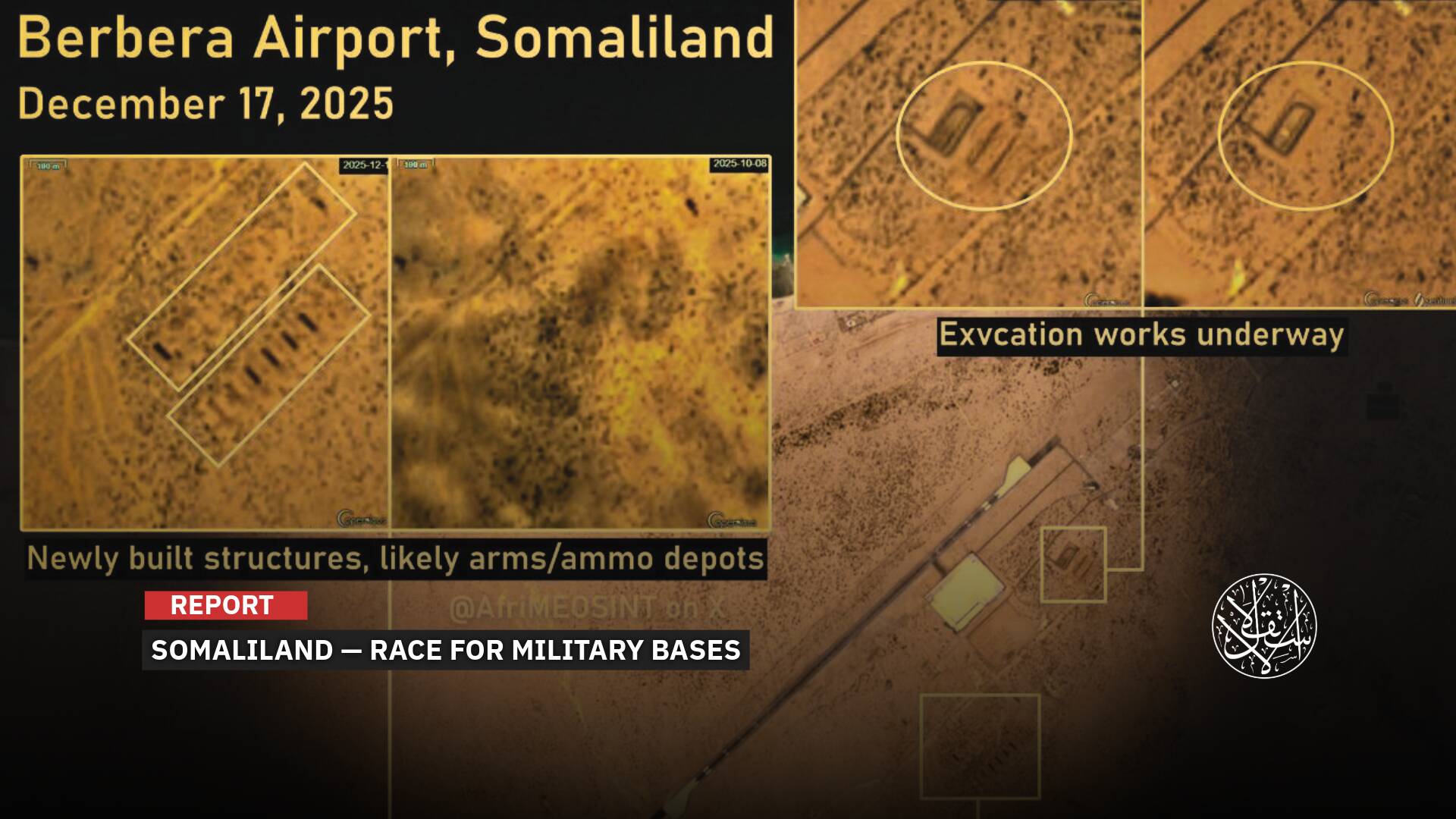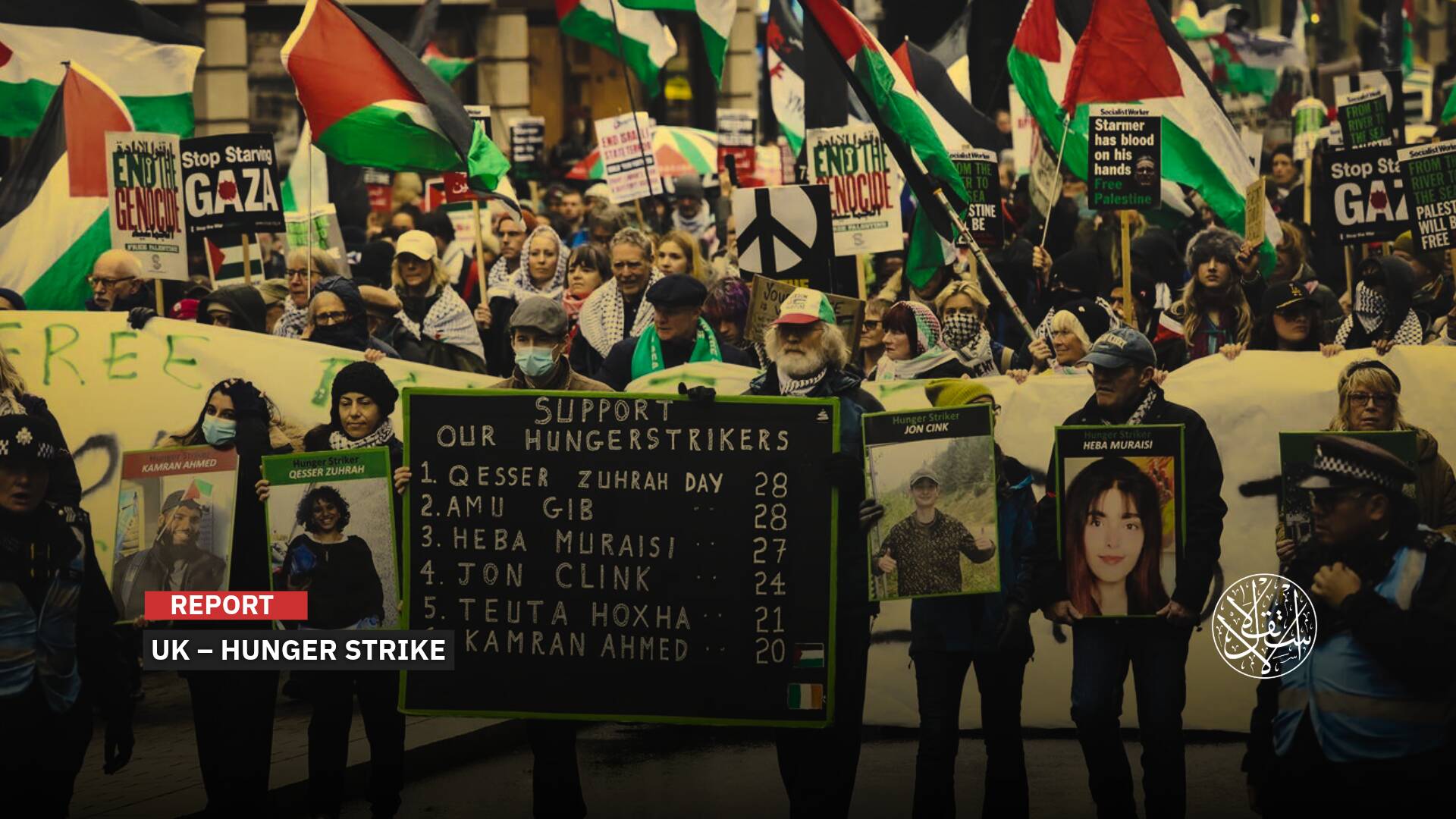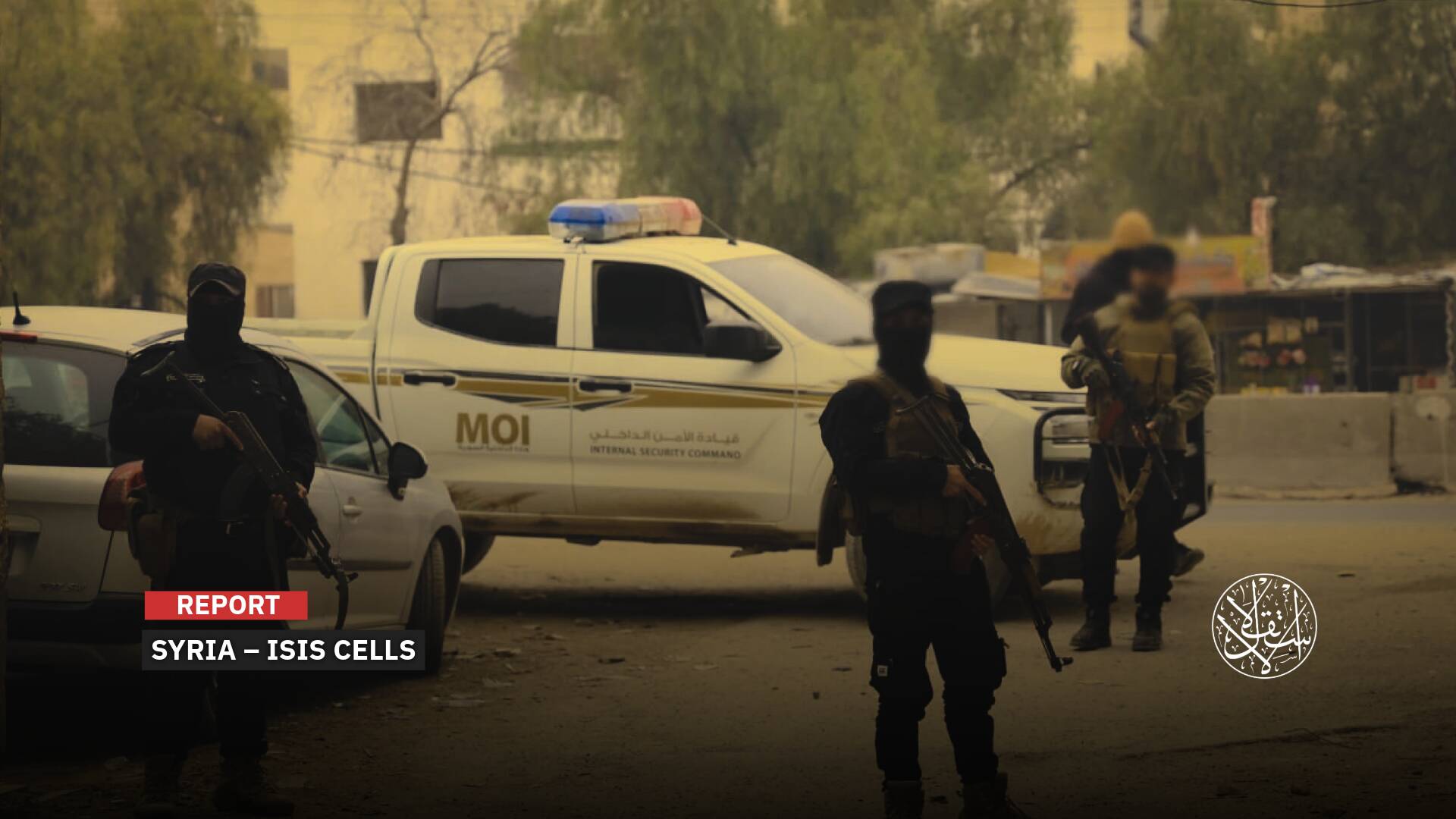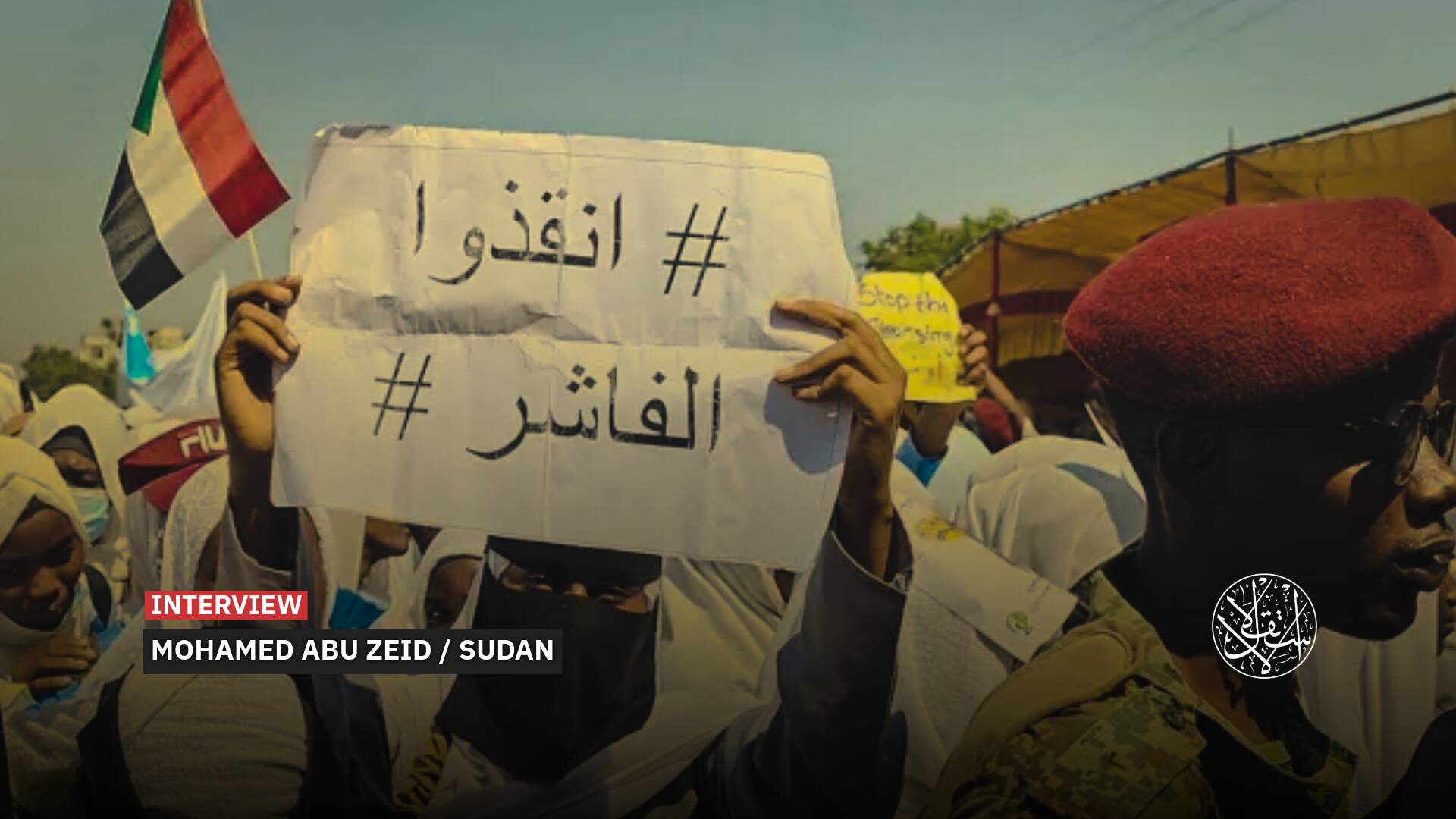Could the Histadrut’s Call for a General Strike Be a Turning Point in the Gaza War?

“The Israeli Finance Minister argued that a strike would harm the economy and that it had no legal basis.”
The Israeli political arena and the Israeli street witnessed an unprecedented uproar, after the army announced that it had recovered the bodies of six hostages held in the Gaza Strip.
In response, Israel's largest labour union, the General Federation of Labour, which represents hundreds of thousands of workers in several economic sectors, called for a general strike on September 2 until 6 pm local time.
However, the Tel Aviv Labor Court later ruled that the general strike, which has disrupted public services in several areas of Israel, must end at 2:30 pm local time.
Following the court ruling, Histadrut Labour Federation chief Arnon Bar-David announced that workers had been ordered to return to work.
The Hostages Families Forum also escalated its protests in order to pressure the Netanyahu government to conclude a prisoner exchange deal with Hamas.
Meanwhile, up to half a million people held protests in Jerusalem, Tel Aviv, Haifa, and other cities, demanding an agreement to return the remaining hostages kidnapped in the Gaza Strip.
According to Reuters, about 101 Israeli hostages, including dual nationals, are still being held in the Gaza Strip, but “Israel” believes that about a third of them have died.
Political Impact
The Israeli army’s announcement on September 1 that it had recovered the bodies of six hostages from a tunnel in Gaza caused shock and anger in “Israel”, as the deaths of these hostages had not been previously announced.
On his part, the leader of the State Camp, Benny Gantz, called on the public to take to the streets, indicating that it was time to replace the government of absolute failure, referring to the government of Israeli Prime Minister Benjamin Netanyahu.
Army Minister Yoav Gallant said that Netanyahu was afraid and hesitant and was playing for time for political considerations instead of rescuing the captives.
He stressed that Netanyahu should protect the hostages, not his coalition, which is controlled by extremists.
He added that the hostages are dying, the children of the north are being evacuated, and Israeli society is collapsing.
Israeli Army Radio quoted opposition leader Yair Lapid as calling on labor unions and local authorities to shut down the economy, and he also called for a general strike.
He indicated on his X account that the hostages were alive but Netanyahu and his government of death decided not to rescue them.
The Civil Service Commission and the Israeli Finance Ministry announced that employees who strike will not receive their wages.
In an attempt to prevent the action, Israeli Finance Minister Bezalel Smotrich wrote to Attorney General Gali Baharav-Miara asking her to submit an urgent request with the Israeli Labour Court to obtain an injunction against the strike.
Smotrich claimed that a strike would harm the economy and that it had no legal basis as its main aim was to influence significant policy decisions of the government on issues related to state security, according to Reuters.
In response to the accusations against him, Netanyahu claimed in a statement that efforts to free the hostages have been ongoing since last December and Hamas refuses to hold real negotiations.

General Strike
On the street, the general strike called by the Histadrut a few days ago and which recently began to be implemented has paralyzed several sectors in “Israel.”
Pressure has been mounting on the Histadrut, which represents hundreds of thousands of workers, to shut down the economy after the announcement that the six hostages had been killed, and after pressure from opposition parties and hostages’ associations to reach an agreement failed.
The Histadrut chairman subsequently called for a general strike on September 2 to pressure the government to reach an agreement to return the Israeli hostages still held by Hamas in the Gaza Strip.
Arnon Bar-David called on all civilian workers to join the strike, adding that political considerations were obstructing a prisoner exchange deal with Hamas.
The strike comes after months of protests by the families of the hostages, underscoring deep divisions in “Israel” over Netanyahu’s approach to ceasefire negotiations.
Observers described the strike as the broadest expression of opposition to Netanyahu’s government since the start of the aggression on Gaza.
The Histadrut chairman’s call was supported by major Israeli industrial companies and high-tech entrepreneurs.
The Israeli Manufacturers Association said it supported the strike and criticized the government for failing to return the hostages alive, which the group called a moral duty.
The Hostage Families Forum, which represents the families of some of those held in the Gaza Strip, said that “the killing of the six hostages is a direct result of Netanyahu’s failure to reach an agreement to stop the fighting and return the hostages.”
“They were all killed in the past few days after surviving for nearly 11 months,” it said in a statement.
“The heads of the Histadrut will not be allowed to turn the country upside down and use the workers as weapons to advance their political opinion,” the Israeli Finance Minister wrote.

A Significant Shift
Observers agreed that the Histadrut’s call for a general strike was a significant development in Israeli society’s attitude toward the Gaza war, with the previous consensus unraveling.
In light of these developments, it seems that there are several factors that may affect the course of events in the near future, and these factors can be summarized in 3 main points: The increasing pressure on the Israeli government due to the hostages' issue, the increasing criticism within the military and security establishment, in addition to international pressure.
Commenting on the general strike in “Israel”, many newspapers noted that this incident may lead to the overthrow of the fragile coalition government in Israel, and ultimately impose an agreement that ends the war that lasted 11 months.
They also pointed out that this incident will constitute a turning point, especially since rescuing those hostages would have been possible if an agreement had been reached during the recent negotiations.
The Histadrut played a pivotal role in the founding of the so-called “State of Israel”. It was founded in 1920, at a time when trade unions were a decisive factor in political and economic influence in many countries.
Its goal in the first decades of its establishment was to meet the needs of workers at the time of Jewish immigration to Palestine, which was then under British administration, and to lay the foundation for the establishment of “Israel” as a state.
It contributed to the establishment of the industrial, financial, and economic institutions from which the nation emerged in 1948.
The union’s leader in the early years, David Ben-Gurion, became Israel’s first prime minister.
The organization, the largest of its kind in Israel, now represents about 800,000 workers from 27 separate unions.
In early 2023, the Histadrut joined other unions, business leaders and military reservists to oppose a plan by Netanyahu’s far-right government to limit the Supreme Court’s ability to overturn decisions by elected officials.
The Histadrut organized a major strike that helped spark one of the biggest internal unrests in Israel in decades. The unrest prompted Netanyahu to suspend the judicial plan.

On his part, the expert on Israeli affairs, Ismail Maslimani, said in a statement to Al-Estiklal that there is a noticeable shift in the position of Israeli society towards the Gaza war, pointing out that this shift may lead to the emergence of old differences to the surface, such as the divisions between the right and the left.
He pointed out the great division that has begun to appear within Israeli society regarding its position on this war and its objectives, adding that Israeli PM Benjamin Netanyahu seeks to prolong the war until the US elections, despite his failure to resolve all the pending issues surrounding it, such as the Gaza war, the northern front and the hostages' file.
He also pointed out that Israeli society has begun to realize that the continuation of the aggression on Gaza has no moral basis, noting that this crisis has proven the fragility of some of the main components on which “Israel” and the Zionist movement were built.
Regarding the importance of the strike called for by the Histadrut, Mr. Malsmani explained that this union is responsible for most workers and employees in the Israeli public sector, including government companies, local councils, and municipalities.
He believes that the strike may affect the course of the negotiations, pointing out that Hamas still has a strong card in the negotiations, which is the remaining living hostages.
Sources
- Histadrut labor union announces nationwide strike, over failure to release hostages
- Nationwide strikes erupt in Israel as hostage deaths kindle pressure for cease-fire deal
- Histadrut, the Labor Union Behind Israel’s Strike, Has Long History of Influence
- Israel's main labour union calls strike as pressure mounts for hostage deal











